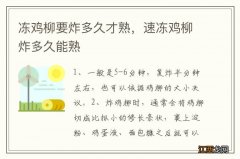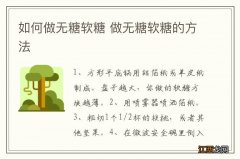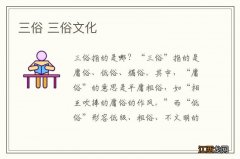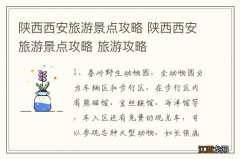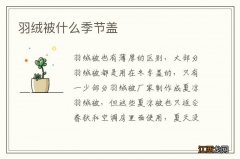
1、as 句型:
(1) as引导方式状语从句句型:“按照……;正如……”
例:We do farm work as the old peasant teaches us.
As (it is) in your country, we grow wheat in the north and rice in the south. 正如(像) 你们国家一样,我们北方种植小麦 , 南方种植水稻 。
(2) as+形容词/副词原级+(a /an)+名词+as ;
否定式:not as/so --- as
例:He is as good a player as his sister.
他和他姐姐一样是位优秀的运动员 。
(3) such + n. + as to do 如此……以致于……
例:She is such a fool as to believe what he said.
她是一个如此的一个笨蛋以致相信了他所说的话 。
(4) so + adj./adv. + as to do sth 如此……以致于……
例:He was so strong as to carry the heavy box.
他是如此的强壮以致于能提起那重箱子 。
(5) such --- as---象……之类的…… (接名词或定语从句)
例:He wished to be such a man as Lei Feng was.
他希望成为一个像雷锋这样的人 。
(6) the same +名词+as 和……一样的…… (接名词或定语从句)
例:He is not the same man as he used to be 他不是从前的那样子了 。
(7) as 引导非限制性定语从句
例:As is known to us, knowledge is power.众所周知,知识就是力量 。
(8)引导时间状语从句 。与while意义相近
例:We get wiser as we get older. 随着我们长大 , 我们也变得越来越聪明 。
(9) 引导原因状语从句,与because的用法相近
例:As it was getting very late, we soon turned back.
因为越来越迟了,所以我们不久就回来了 。
(10) 引导让步状语从句
例:Child as he is, he knows much about science.
尽管他是一个小孩,但他对科学了解得很多 。
2、prefer 句型:
(1) prefer to do sth
例:I prefer to stay at home.我宁愿呆在家里 。
(2) prefer doing sth
例:I prefer playing in defence.我喜欢打防守 。
(3) prefer sb to do sth
例:Would you prefer me to stay?你愿意我留下来吗?
(4) prefer to do sth rather than do sth……宁愿…...而不愿.…".
例句:I prefer to stay at home rather than go out
我宁愿呆在家里而不愿出去.
(5) prefer doing sth to doing sth
例:I prefer watching football to playing it.
我喜欢看篮球,不喜欢打篮球 。
(6) prefer sth to sth 例:I prefer tea to coffee.我要茶不要咖啡 。
3、when 句型:
(1) be doing sth ---- when ---
例:He was still smiling when the door opened and his wife came in.
他正笑着的时候门突然开了,他妻子走了进来 。
(2) be about to do sth --- when ---
例:We were about to start when it began to rain.
我们刚要出发 , 天就开始下雨了 。
(3) had not done sth --- when ---/ hardly --- when ---
例: He had not fallen asleep when the telephone rang.
他刚要入睡电话就响了 。
(4) had just done ---- when ---
例:I had just gone to bed after a very hard day when the phone rang. 在劳累了一天之后我刚刚就寝,电话铃就响了 。
4、seem 句型:
(1) It +seems + that从句
例:It seemed that everyone was satisfied.看来好像每个人都很满意 。
(2) It seems to sb that ---
例:It seems to me that she is right.我看她是对的 ,
(3) There seems to be ----
例:There seems to be a heavy rain.看上去要有一场大雨 。
(4) It seems as if ---- 例:It seemed that she couldn't come to class.看样子她不能来上课了 。
5、表示“相差……;增加了……;增加到……”句型:
(1) She is taller than I by three inches. 她比我高三英寸
(2) There is one year between us. 我们之间相差一岁 。
(3)She is three years old than I她比我大三岁 。
(4) They have increased the price by 50%. 他们把价格上涨了50%
6、what 引导的名词性从句
(1) what 引导主语从句
例:What surprised me is that everybody seemed to be very indifferent to her.
让我吃惊的是每个人似乎对她都很冷淡.
[ indifferent adj.不关心的;冷漠的]
(2) what 引导宾语从句
例:We can learn what we do not know. 我们能学会我们不懂的东西 。
(3) what 引导表语从句
例:That is what I want.那正是我所要的 。
(4) what 引导同位语从句
例:I have no idea what they are talking about. 我不知道他们正在谈论什么.
7、too句型:
(1) too...to do sth.
例:Politics is too important to be left to the politicians.
(=Politics is so important that it can't be left to the politicians.)
政治太重要了,不能由政治家来决定 。
(2) only too --- to do sth
例:I shall be only too pleased to get home.我要回到家里就非常高兴 。
(3) too + adj + for sth
例:These shoes are much too small for me.我穿这双鞋太小了 。
(4) too + adj + a + n.
例:This is too difficult a text for me.这篇课文对我来说太难了 。
(5)can't … too +形容词无论……也不为过
例:We cannot emphasize the importance of protecting our eyes too much.我们再怎么强调保护眼睛的重要性也不为过
8、where句型:
(1) where 引导的定语从句
例:This is the house where he lived last year. 这就是他去年住过的房子 。
(2) where 引导的状语从句
例:Where there is a will , there is a way.有志者事竟成 。
He left his key where he could find.他将钥匙放在易找到的地方 。
I will go where I want to go.我要去我想去的地方 。
(3) where引导的表语从句
例:This is where you are wrong.这正是你错的地方 。
注:引导状语从句的where= 介词+the place where (定语从句)例:Go where(ver) you are most needed.到最需要你的地方去
9、wish 句型
(1) wish that sb did sth希望某人现在做某事
例:I wish I were as strong as you. 我希望和你一样强壮 。
(2) wish that sb had done sth希望某人过去做某事
例: I wish you had told me earlier要是你早点告诉我就好了 。
(3) wish that sb would/could do sth希望某人将来做某事例:I wish you would succeed this time. 我希望你这次会成功
10、would rather 句型:
(1) would rather do sth than do sth 宁愿做……而不愿做……
例:She would rather die than turn against his motherland.
她宁可死也不去背叛祖国 。
(2) would rather have done sth 宁愿过去做过某事
例:I would rather have taken his advice.我宁愿过去接受他的意见 。
(3) would rather sb had done sth宁愿某人过去做过某事
例:I would rather I had passed the examination last week.
我真希望通过上星期的考试
(4) would rather sb did sth宁愿某人现在或将来做某事
例: Who would you rather went with you? 你宁愿谁和你一起去?
11、before 句型:
(1) before sb can/ could … 某人还没来得及……
例:Before I could get in a word , he had measured me.
我还没来得及插话 , 他就给我量好了尺寸
(2) It will be +时间+ before + 还有多长时间……
例:It will be 4 years before he graduates. 他还有四年时间变毕业了 。
(3) had done some timebefore(才……)
例:We had sailed four days and four nights before we saw land.
我们航行了四天四夜才见到陆地 。
(4)had not done --- before ---不到……就……
例:We hadn’t run a mile before he felt tired.
我们还没走到一英里路就觉得累了 。
(5) It was not +一段时间+ before不多久就……
例:It wasn’t two years before he left the country. 还没到两年他们离开了那国家 。
12、强调句型:
(1) It is /was +被强调部分+that(who)...
例:It was I who wrote to my uncle yesterday.
是我昨天给我叔叔写信的 。
(2) Is/was it + 被强调部分 + that (who) ...
例:Was it your brother that you met in the street?
在街上你遇见的是你兄弟吗?
(3) Where/who/what/how等特殊疑问词 + is/was it that ...
例:How is it that you will go to visit her tomorrow?
明天你究竟怎样去看望她?
(4) do +谓语动词(强调谓语)例:They do know the place well. 他们的确很熟悉那个地方
13、用于表示过去未实现的希望和计划的句型:
(1) should like to/ would like to/ would love to have done sth.
例:You should like to have written to your mother.
你本应当给你母亲写信 。
(2) was / were going to do sth.(用过去将来时态表示原打算做什么)
例:Lucy was going to watch a basketball match.
Lucy 原打算看一场篮球比赛 。
(3) was / were going to have done sth. 表示未完成原来的计划和安排
例:Lily was going to have cleaned her bedroom, but she had no time.
Lily 原打算清理她的卧室,但她没时间 。
(4) expect, intend, hope, mean, plan, promise, suppose, think, want, wish ...
常用过去完成时态,在这些词后接宾语从句或者接不定式的一般形式;
或者用一般过去时态后面接不定式的完成形式表示过去未曾实现的愿望
例:She had supposed him to be very rich.她原以为他很有钱 。
(5) wish that …had done sth.表示过去未曾实现的愿望.
例:I wish he had been here yesterday. 要是他昨天在这儿就好了 。
(6) 情态动词should ,would, could, might, ought to等后接不定式的完成时,
表示过去本该做 , 打算做 , 想做而未做的事情.
14、倍数句型:
(1)倍数+比较级+than...,
例:The room is twice larger than that one.这个房间是那个房间的两倍大 。
There is 30 times greater chance of being hit by lightening than being attacked by a shark.
(2)倍数+as+原级+as... ,
例:The room is three times as large as that one.
这个房间是那个房间的三倍 。
(3)倍数+the size /height/length /weight /width of...
例:The room is three times the size of that one.这个房间是那个房间的3倍大
should have done =ought to have done本应该做而没做
15、 It is ------ that ---- 句型
(1) It is + 名词 + 从句
It is a fact/an honour ---that+陈述语气从句
例:It is a fact that the earth moves around the sun.
地球围绕太阳转是事实 。
It is a pity/shame/no wonder that+ 虚拟语气从句
例:It is a pity that he should not come. 他若不来可真是遗憾 。
(2) It is + 形容词 + 从句
It is
natural/important/necessary/strange that + 虚拟语气从句
例:It is important that enough money be collected to fund the project.
重要的是募集足够的钱,为这个项目提供资金 。
It is obvious/apparent/clear that+ 陈述语气从句
例:It is clear that she doesn't like the dress at all.
这很清楚她一点儿也不喜欢这条裙子 。
(3) It + 过去分词 + 从句
It is generally/commonly believed /accepted/thought/heldthat ...
+陈述语气从句
例:It is universally acknowledged that trees are indispensable to us.
全世界都知道树木对我们是不可或缺的 。
It is
suggested/ordered/desired/requested/decided that +虚拟语气从句
例句:It is suggested that we should hold a meeting next week.
建议我们下周开上会 。
would have done = 本来就会去做某事而没做
could have done = 本可以做某事而没做
might have done本可以做而没做例:They ought to have apologized.他们本该道歉的 。
16、It + 不及物动词 + 从句
(1) It seems that
例:It seems that Alice is not coming to the party at all.
看来Alice根本就不准备来参加聚会了 。
(2) It happened that...……很偶然.
例:It happened that I won the football lottery last week.
我上星期偶然中了足彩
(3) It occurred to sb that...
例句:It suddenly occurred to me thatI knew how to solve that problem.
我突然想起我知道怎样解决那个问题.
(4) It appears that.... 例: It appears that Tom might change his mind.看来汤姆会改变主意
17、比较句型:
(1)原级比较:
例:English is not so difficult a subject as Russia.
英语不是和像俄语一样难的科目 。
Their bones are not as thick as adults’.
他们的骨头和成年人的不一样厚 。
(2)一方超过另一方:
例:The weather of this year is a lot hotter than that of last year.
今年的气候比上一年的气候要热得多 。
(3)一方不如另一方:
例:The restoration was so bad that it made some of the buildings less secure than they had been before.
修复工作是如此的糟,以致于它使得一些建筑没有以前安全了 。
(4) The + -er + S + V, --- the + -er + S + V ---
The + more + Adj + S + V, --- the + more + Adj + S + V ---
(愈...愈...)
例:The harder you work, the more progress you make.
你愈努力 , 你愈进步 。
The more books we read, the more learned we become.
我们书读愈多,我们愈有学问 。
(5) more…. than…与其说…倒不如说
例:Smith is more diligent than intelligent.
与其说Smith聪明倒不如说他勤奋 。
(6) no +形容词比较级+ than = as +形容词的反义词+as
例:I am no better at English than you. 我的英语不比你好 。
(7) that 在前后比较中代替不可数名词和特指的单数可数名词
例:The traditional picture of St Nicholas is quite different from that
of Father Christmas.
(8) one 在前后比较中代替泛指的单数可数名词 。
例:I prefer a flat in Beijing to one in Nanjing, because I want to live near
my Mom's. 与南京相比我更喜欢在北京有一套公寓,因为我想跟我妈妈住一起 。
(9) those 在前后比较中代替 特指的复数可数名词 。
例:Salaries are higher here than those in my country.
这儿的工资比我们国家的高 。
(10) ones 在前后比较中代替泛指的复数可数名词 例:Cars do cause us some health problems --- in fact far more serious ones than mobile phones do.汽车确实给我们的身体健康带来问题 , 事实上比手机造成的问题更严重
18、感叹句型:
(1) What a + Adj + N + S + V!
【超级详细 高考英语常考必背核心句型总结】例:What an important thing it is to keep our promise!
信守我们的诺言是多么的重要?。?
(2) How + Adj + a + N + V!(多么...?。?
例:How important a thing it is to keep our promise!
遵守诺言是多么重要的事!
(3) How + S + V!
例句:How I want to go to Beijing. 我多么想去北京?。?
19、表法猜测的句型:
(1) must have done sth 一定做过某事 否定形式:can't have done
例:She must have come here last night. 她一定是昨晚来的 。
She can't have gone there她不可能到那儿去 。
(2) may have done sth可能做过某事否定形式:may not have done
例:Philip may have been hurt seriously in the car accident.
Philip 可能在这次车祸中伤得很严重 。
(3) might have done sth 或许做过某事 否定形式: might not have done
例:She might have known what the bottle contained.
她或许知道这个瓶子里装的是什么 。
(4) should have done sth 估计已经做了某事
否定形式:should not have done 例:She should have arrived in her office by now.她此刻估计已经到达办公室了 。
20、动词不定式常用句型:
(1) It takes / took / will take sb. some time / money to do sth.
某人花/花了/将花多长时间/多少钱做某事.
例句:It took me years of hard work to speak good English.
为了讲一口流利的英语,我花了多年时间刻苦操练.
(2) It is + adj +for/of sb to do sth
例:Lincoln said that it was not right for the South to break away from the
Union.林肯说南方脱离联邦是不对的 。
It was careless of Tom to break the cup.
(3) Sb. have / has / had no choice but to do... 某人除了做……别无选择.
例句:We had no choice but to take a taxi for we'd missed the last bus.
由于错过了最后一班公共汽车,除了乘坐的士,我们别无选择.
(4) It's not /just like sb. to do sth.……的行为不/正像某人的一贯作风.
例:lt's not like Jim to be late for class. He regards time as the most
important thing in life.
上课迟到不像吉姆的一贯作风,他把时间看作是生命中最重要的.
(5) ....形容词/副词+enough to do sth.
例:I was fortunate enough to travel to South Africa..
(6) It pays to + V --- (...是值得的 。)
例句:It pays to help others. 帮助别人是值得的 。
(7) It cost sb some time/money to do sth
例:It must cost a good deal to live here.住这儿一定会花很多钱的 。
(8) do all he could to do sth
do what he could to do sth
do everything he could to do sth
例:They were doing everything they could to help the fatherland.
他们在尽最大努力去帮助祖国 。
(9) It is hard to imagine/ say …很难想象/说……
例:It is hard to imagine how Edison managed to work twenty hours each
day.很难想象爱迪生每天是怎样工作20小时的 。
It's hard to say whether the plan is practical.这个计划是否实际很难说
21、动名词常用句型:
(1)...have trouble/difficulty/a hard time/a difficult time (in) doing sth.
(有困难做某事)
例:People from the two countries do not have any difficulty in understanding each other.
来自那两个国家的人们在相互理解上是没有困难的 。
(2) upon/on doing sth, 一……就……
例:Upon / On hearing the unexpected news, he was so surprised that hecouldn't say a word.
一听到这个出乎意料的消息,他惊讶到说不出话来 。
(3) There is no/some difficulty/trouble (in) doing sth.
例:There is no difficulty in solving this social problem.
解决这个社会问题毫无困难 。
(4) There is no need/use harm/hurry in doing sth
例:There is no need in sending such expensive present.
没有必要送这样贵重的礼物 。
(5) spend some time/money (in) doing sth
例:They say children spend too much time chatting and playing games instead of focusing on their school work.
他们说孩子们花太多的时间在闲聊和玩游戏上,而不是集中在学习上 。
(6) It's no use / good/ worth doing sth
例:It’s no use talking with him. He won’t listen to you.
跟他谈没用,他不会听你的 。
(7) It's a waste of time/money/energy doing例:It's a waste of time watching TV programme as this
22、as if/though 句型:
例:He spoke to me as if I were deaf.
他那样给我说话,就像我是聋子似的 。
The new students talked as though they had been friends for years.
新来的学生们说话很亲热,就像多年的老朋友似的 。
23、‘If’虚拟条件句
(1) 与过去事实相反
例:If the man had pointed with his first finger while he was in Brunei, everyone would have thought that he was very rude.
在Brunei,如果那人用第一个手指指着的话,那人人都会认为他很不礼貌 。
(2) 与现在事实相反
例:If I were in your position, I would call the police immediately.
如果我处在你的位置,我会立即打电话给** 。
(3) 与将来事实相反
例:If I had (should have) time tomorrow, I would certainly help you.
如果我明天有空的话,我当然会帮助你的 。
(4) 虚拟条件句中的倒装:
例:Should it rain, the crops would grow better.
如果天下雨的话,庄稼会长得更好 。
Were I your father, I would not give you the money.
如果我是你父亲的话,我就不会给你那钱了 。
Had it not been for the captain, the ship would have sunk如果不是那船长的话,那船就会沉没了
24、Not --- until 句型
(1) 陈述句 not --- until --- 直到……才
例:Last night I didn't go to bed until 11 o'clock. 昨晚我11点钟才睡觉 。
(2) 强调句It wasn't until…that... 直到……才…….
例:It wasn't until yesterday that I got your letter.
我直到昨天才收到你的来信.
(3) 倒装句 Not until...did... 直到……才…….
例:Not until I began to work did I realize how much time I had wasted.直到我开始工作,我才意识到我已蹉跎了很多岁月
25、since 句型:
(1) Since + S + 过去式,S + 现在完成式
例句:Since he went to senior high school, he has worked very hard.
自从他上高中,他一直很用功 。
(2) It is +--- + since +持续性谓语动词(表否定)
例:It is three years since she lived here. 她已三年不住这儿了 。
(3) It is + --- + since S + 瞬间谓语动词(表肯定)例:It is years since I stopped smoking).我戒烟已经数年了
26、If only...! 真希望……!若是……那该多好啊!
(1) 谓语动词用过去式表现在:如:
例:If only I knew his name! 要是我知道他的名字就好了 。
(2) 谓语动词用过去完成时表过去:如:
例:If only we had followed your advice! 我们要是采纳你的意见就好了 。
(3) 谓语动词用could/would表将来:如:
例:If only I could see him again! 要是我能再看到他多好?。?
If only she would accept my invitation!
要是她接受我的邀请该多好?。?
27、让步状语从句:
(1) Adj./n./adv. + as/ though+ Subject(主词)+ be, S + V--- (虽然...)
例句:Rich as our country is, the qualities of our living are by no means satisfactory.
虽然我们的国家富有,我们的生活品质绝对令人不满意 。
(2) No matter what等特殊疑问词...…无论什么…….
例句:No matter what happens, I'll always stand by you.
不论发生什么事,我都永远支持你.
(3) However + adj/adv + S + V,尽管……
例:You won't be able to do it alone, however much you try.
不论你多努力,你一个人也做不来 。
(4)
whatever/whoever/whenever/wherever + S + V , 无论什么/哪里……
例:Wherever I am I will be thinking of you. 不管我在哪里我都会想到你 。
(5) whether… or not
例:Whether you like it or not, you'll have to do it.
不管你喜欢不喜欢,你必须做这件事 。
(6) even if/though
例:Even if/Even though the exercise is very difficult, you must do it.即使那练习很难,你都必须做 。
28、违反常规的冠词位置句型:
(1) so/as/that/too/how +adj. + a/an + n.
例:He is as good a student as you. 他和你一样是个好学生 。
This is too difficult a problem for me.对我来说这是一个太难的问题 。
You can hardly imagine how clever a boy he is.
你几乎想象不到那孩子有多聪明 。
(2) quite/rather/what/such/many + a/an + (adj) +n
例:She sang quite a beautiful song. 她的歌唱得很漂亮 。
He was such a fool as to believe what she said.
他是这样的一个笨蛋以致于相信了她说的话 。
(3) all/both/half/twice the + n
例:All the students in her class like her very much.
她班上所有的学生都喜欢她 。
29、表示最高级的句型:
(1) Nothing is + --- er than to + V
Nothing is + more + 形容词 + than to + V
例:Nothing is more important than to receive education.
没有比接受教育更重要的事 。
(2) no one (nobody, nothing)+so/as+原级+as
例:Nobody is so blind as those who will not see.
没有人像那些视而不见的人如此的瞎了 。
(3) 比较级+than + any other +名词单数
比较级+than +anything(anyone)else
比较级+than + any of the others
例:Bamboo probably has more uses than any other plant in the world.
(4) 否定词 +比较级
例:It can’t be worse.这是最糟的
I can’t agree any more.我非常同意 。
(5) be the last ----
例:This is the last thing I want to do. 这是我最不想干的事 。
30、more --- than 句型:
(1) more --- than与其……不如……
例:He is more lazy than slow at his work.
= He is less slow than lazy at his work.
在工作上与其说他慢不如说他懒 。
(2) more than超过;不仅仅是;非常
例:These flags are more than just colorful pieces of cloth and thread sewn together. 这些旗子不只是不同颜色的布料和丝线逢在一起 。
(3) not more than最多 , 不超过
例:They finished the project in not more than one year.
在不超过一年的时间内,他们完成了那项工程 。
(4) no more than仅仅
例:The officials could see no more than the Emperor.那些官员能看到的仅仅是皇帝
31、形式宾语与宾语补语句型:
(1) 形式宾语代动词不定式
例:I think it necessary to explore the space. 我认为探索太空是有必要的 。
(2) 形式宾语代从句
例:They found it strange that no one would take the money.
他们感到很奇怪谁也不要这一笔钱 。
(3) 过去分词做宾语补语表示宾语被动的动作:
例:I had my pen stolen. 我的笔被偷了 。
(4) 现在分词做宾语补语表示宾语正在进行的动作 。
例:They found her lying in bed reading a novel.
他们发现她躺在床上看小说 。
(5) 以名词(间或可用代词)作宾语补足语:
例:In 1849, he went to England and made London the base for hisrevolutionary work.
1849年他到了英国,并且把伦敦作为他的**工作的基地 。
I think him an honest man.我认为他是一个诚实的人 。
(6) 介词短语做宾语补语:如:
例:I can't find him in the office.我在办公室外没有发现他 。
(7) What do you find the hardest in... 你觉得……最大的困难是什么
例句:What do you find the hardest in learning English 你觉得学英语最大的困难是什么
32、特殊的条件句:
(1) Suppose/ Supposing ---, 假如……
例:Suppose/Supposing he is absent, what shall we do?
假如他缺席,我们怎么办?
(2) On condition that只要……;如果……
例:I'll come on condition that John is invited, too.
如果约翰也被邀请,我就来 。
(3) provided (that)/ providing ----- 只要……
I will come provided (that) I am well enough. 只要我身体好 , 我一定来 。
You may go out providing you do your homework first.
只要你先做作业,你便可以外出 。
(4) so/as long as
例:As/So long as you work hard, you'll succeed in the end.
只要你好好干,终究会成功的 。
(5) 祈使句+and + 陈述句(表肯定)
例:Give him an inch and he’ll take a mile.
(= If you give him an inch, he’ll take a mile. ) 他会得寸进尺的 。
(6) 祈使句+ or/otherwise +陈述句 (表否定)
例:Start at once, or / otherwise you’ll miss the train.
(= If you don’t start at once …)
(= Unless you start at once, you’ll miss the train.)
立即动身,否则你会错过那班火车的 。
(7) …won't...unless... 除非……否则我不会…….
例句:I won't write to him unless he writes to me first. 我不会写信给他的,除非他先写给我
33、特殊的比较句型:
(1) A differs from B in that… (A不同于B在于……)
例:She differs from her sister in the colour of her eyes.
她眼睛的颜色跟她姐姐不同 。
(2) ...varies from person to person (……是因人而异的)
例:The opinion of the problem varies from person to person. 对这个问题的看法是因人而异的 。
34、必须背诵的There be 句型:
(1) There is no immediate solution to the problem .
对于这个问题没有立即的解决的方案 。
(2) There is no denying that + S + V ...(不可否认的...)
例:There is no denying that the qualities of our living have gone from bad
to worse.不可否认的,我们的生活品质已经每况愈下 。
(3) There is no doubt that... 毫无疑问…
例句:There is no doubt that health is better than wealth.
毫无疑问,健康胜于财富.
(4) There's no point in... …是无意义的.
例句:There's no point in getting angry when things have happened.
对已发生的事生气是没有意义的.
(5) There's no way... ……绝不可能.
例句:There's no way one could succeed without hard work.
一个人不努力绝不可能成功.
(6) There is no one but --- (没有人不...)
例句:There is no one but longs to go to college.
没有人不渴望上大学 。
(7)There is no need/use/harm/hurry in doing sth
例:There is no need in spending money mending the broken car.
没有必要花钱去修理那破车了 。
There is no use in regretting when time passed by.
时间过去了再后悔就没有用了 。
There is no harm in using the environmentally friendly products.
用环保产品是没有害处的 。
There is no hurry in running to school for time is still enough.
没有必要匆匆忙忙上学校,因为时间还充足呢 。
(8) There no/some difficulty/trouble (in) doing sth 例:There is no trouble in selling our car. 我们毫不费力地卖了我们的车
35、time 句型:
(1) the first time 引导的状语从句
例:I thought her nice and honest the first time I met her.
第一次我见到她时,觉得她很诚实 。
(2) (the) next time引导的状语从句
例:The harvest will have been got in(the) next time you come.
你下次来时,庄稼已收好了 。
(3) the last time 引导的状语从句
例:What was the name of the hotel he had stayed inthe last time he was
in Cairo? 他上次来开罗时往的那家旅馆叫什么来着?
(4) each time/every time引导的状语从句
例:Every time you get back at night, you drop your shoes on the floor.
每次夜间回来,你总是把你的靴子朝地上一扔 。
(5) It is /was the first/last/second /third time +从句(完成时态)
例:This is the first time I have been here这是我第一次到这儿 。
(6)It is high time that sb did (should do) sth该……的时候了 。
例句:It is high time that we went to the classroom.
该我们进教室的时候了 。
(7) by the time + 从句就在……时候;到……时候为止
例:We'll be readyby the time you get back.
你回来的时候,我们将准备好了 。
(8) It's time for sb to do sth
例:It’s time for me to log off. 我该关机/下线了 。
(9) It's time for sth例:It's time for lunch.午餐的时间到了
36、几种重要的表语从句句型:
(1) The point is that ... 重点/关键是…….
例句:The point is that you have to keep your promise to help her with
her English.关键是你得遵守诺言,帮她学习英语.
(2) The chanceis that … 有可能……
例:The chance is that he will succeed. 他很有可能成功 。
(3) The fact is that … 事实是……
例:The fact is that he hasn’t yet recover from illness.
事实是他还没有康复呢 。
(4) The problem/question is that … 问题是……
例:The question is whether we should ask them for help.
问题是我们是否应该向他请求帮助 。
(5)That is ---
例:That is where Lu Xun used to live. 这是鲁迅过去住过的地方 。
37、几种重要的倒装句型:
(1) only 倒装句
例:Only with hard work can you expect to get a pay rise.
只有靠努力的工作你才能指望提高工资 。
Only when he told me about the news did I know the truth.
仅仅当他告诉了我这消息我才知道真相 。
(2) so 倒装句
例:So precious is time that we can’t afford to waste it.
时间是如此珍贵,我们经不起浪费它 。
(3) such 倒装句
例:Such was the story he told. 这就是他讲的故事 。
Such a well-known man is he that everyone wants to take a photo
with him.他是如此出名的人以致于人人都想和他拍照片 。
(4)含有否定意义的词组提前
例:On no account can we ignore the value of knowledge.
我们绝对不能忽略知识的价值 。
(5)介词短语提前
例:Outside the classroom stood an old man. 在教室的外面站着一位老人 。
(6) 分词提前
例:Seated on the ground are a group of young men playing cards.
坐在地面上的是一群年轻人在打牌 。
Lying on the floor was a boy aged about seventeen.
躺在地板上的是一个17岁的男孩 。
(7) not only --- but also 倒装句
例:Not only was the city polluted but the streets were crowded.
不仅那城市被污染了,街道也很拥挤 。Not only has aspirin saved many people’s lives by reducing fever and helping stop pain, but there are also other things that aspirin can help with. 通过消热止痛,阿斯片林不仅拯救了许多人的生命 , 而且还帮助了许多其它的事情
38、so/such that句型
(1) so that (引导结果状语从句)结果……
例:We were late so that the teacher was angry.
我们迟到,使得教师生气了 。
(2) so that = in order that (目的状语从句)以便,为了
例:I hurried so that I wouldn't be late for class.
为了上课不迟到 , 我匆忙起来 。
In order that he should not be late, his mother woke him at 6.
为了使他不致迟到,他母亲在6点钟叫醒了他 。
(3) so +形容词+(或a/an+ 名词)+that如此……以致于……
例:I've been working so hard recently that I haven't had any time for collecting new stamps. 我近来一直很忙,没时间搜集新邮票 。
(4) such +名词(或an/a+形容词 + 名词)+--- that
例:It is such an unusual work of art that everyone wants to have a look at it这是一个异乎寻常的艺术作品 , 人人都想看一看
39、表示“也、同样”的句型
(1) too 用于肯定
例:I like the book, too.我也喜欢这本书 。
(2) also 用于陈述句
例:She also speaks a little Italian.她也会说一点意大利语 。
(3) either 用于否定句
例:Peter can't go and I can't either. Peter 不能去,我也不能 。
(4) so 用于肯定的倒装句
例:You speak English well, so does he.
你的英语讲得很好,他讲得也不错 。.
(5) neither/nor 用于否定的倒装句
例:I have never heard of such a thing, Neither has she.
我从来没有听说这件事,她也没有 。
Tom didn’t finish his homework. Nor did Jane.
汤姆没有完成作业,Jane 也没有 。
(6) as well 用于句末
例:He knows German as well. 他也懂德语 。
(7) so it is/was with = so it is/was the same with 用于包含不同种类的动词
例:Jack is a student and studies in China. So it is with Green.
Jack是一个学生,在中国学习,Green也是如此 。
(8) The same is true of……,
例:The music is dull and uninspiring, and the same is true of the acting.
那音乐单调,缺少激情;那表演也是如此 。
(9) The same can be said of… (…也是如此) 。
例:The same can be said of our country, also a developing one.我们的国家也是如此,一个发展中国家
40、几种重要的同位语从句:
(1) 由where 引导
例:The suggestion where we should build our new factory should be
considered.那个我们应该在哪儿建造厂房的建议应该给予考虑 。
(2) 由what引导
例:I have no idea what he did. 我不知道他做了什么 。
(3) 由whether 引导
例:The question whether he’ll attend the meeting is not decided.
他是否会参加会议这个问题还没决定 。
(4) 由who引导 。
例:The question who will go abroad needs considering.
谁将去国外这个问题需要考虑 。
(5) 由when 引导
例:I have no idea when they will be back and settle down.
我不知道他们什么时候回来定居 。
(6) 由that 引导
例:The suggestion that the students should have plenty of exercise is very good. 学生应该有很多练习,这个建议不错 。
(7) 由how 引导
例:He can’t answer the question how he got the money.
他是怎样得到那钱的 , 他不能回答这个问题 。
(8) 由why 引导
例: We don’t understand the problem why this is the best choice.我搞不懂这个问题,为什么这是最好的选择
41、whether 句型:
(1) It doesn't matter whether是否……并没有关系
例:It doesn’t matter whether it is fine or not.
天气是否不错并有关系 。
(2) It makes no difference whether 是否……没关系
例:It makes no difference whether you go today or tomorrow.
你是今天去还是明天去没多大区别 。
(3) It is not made clear whether 是否……还不清楚
例:It is not made clear whether Lily will pass the exam.
还不清楚Lily是否会通过那场考试 。
(4) It is still a question whether 是否……仍然是一个问题
例:It is still a question whether they are able to get enough coal this winter.
今年冬天他们是否能够得到足够的煤还是一个问题 。
(5) It is not decided whether 是否……还没决定
例:It is not decided whether the sports meeting will be put off.
运动会是否会被推迟还没决定 。
(6} It is to be found out whether 是否……有待于发现
例:It is to be found out whether there is other oil resources underground.
地下是否有石油资源还有待于发现 。
(7) It is to be decided whether是否……有待于决定
例:It is to be decided whether this idea can be put into practice.
这个想法是否能够实施还有待于决定 。
(8) I doubt/wonder whether 我怀疑是否……
例:I doubt whether the new one will be any better.
我怀疑这个新的是否会好一点 。
(9) have no idea/don't know whether 不知道是否……
例:I have no idea whether the traffic is terrible on that way.
我不知道那条路上的交通是否很糟 。
(10) It depends on whether... 这取决于……是否…….
例句:It depends on whether you are determined to do it or not. 这取决于你是否决心要做这件事情
42、with复合宾语句型
(1) with + n + adj.
例:He stared at me with his mouth open.他张着嘴凝视着我 。
(2) with + n + adv
例:The boy stood there, with his head down.这男孩低着头站在那 。
(3) with + n + 介词短语
例:He stood with his hand in his pocket. 他站着 , 一手插在衣袋里 。
(4) with + n + 动词不定式
例:With no one to talk to, John felt miserable.
由于没有可谈话的人,John觉得很悲伤 。
(5) with + n + 现在分词
例:With prices going up so fast, we can't afford luxuries.
由于物价迅猛上涨,我们买不起高当商品 。
(6) with + n + 过去分词
例:With her eyes fixed on the opposite wall, she did not answer immediately.她的眼睛盯着对面的墙壁,她没有立即回答
43、have 复合宾语句型:
(1) have sb do sth
例:I won't have you say such things.我绝不会让你说这样的话 。
(2) have sb doing
例:She will have you doing all the housework if you are're not carefully.
如果你再不小心的话 , 她就让你做全部家务 。
(3) have sth done 例:I have my hair cut every six weeks.我每六个星期剪一次头
44、几个重要的目的状语从句句型:
(1) in case
例:He left early in case he should miss the last train.
他动身得早,以免误了最后一班火车 。
(2) for fear (that)
例:He handled the instrument with care for fear (that) it should be
damaged.他小心翼翼地摆弄那仪器,以防把它弄坏 。
(3) so that
例:Let’s take the front seats so that we can see more clearly.
让我们坐到前面的座位上,以便能看得更清楚些 。
(4) in order that
例:He got up very early so that/in order that he might/could catch the early bus.为了赶上早班车,他起了个大早
45、几个难掌握的主语从句和宾语从句
(1) You may take whatever (=anything/everything that)you like.
你喜欢什么就拿什么 。
(2) You may take whichever (=any) seat you like.
你想坐哪个位置就坐哪个位置 。
(3) Whoever (=Anyone who) cuts the trees down must be punished.
任何一个砍树的人都必须受到惩罚 。
(4) You may give the note to whomever (=anyone whom) you meet at the office.你可以把条子给你在办公室看到的任何一个人
46、使用现在完成时和过去完成时的常用句型:
(1) since句型:主句用完成时
例:My aunt has worked in a clinic since 1949.
从1949年,我婶婶就一直在一家诊所工作 。
(2) since when +完成时
例:Since when have you planted so many young trees?
从什么时候你种植了这么多小树的?
(3) This/it is the first (third...) time sb have done sth
例:This is the first time I have been here.这是我第一次到这儿 。
(4) by…(到……为止)到过去某个时候为止用过去完成时,到现在为止
用现在完成时,到将来某个时候为止用将来完成时 。
例:She will have finished the book by my next birthday.
到我下一个生日为止 , 我将完成那本书 。
By eleven o'clock yesterday, we had arrived at the airport.
到昨天十一点止我们就已经到达机场了 。
但比较:By the time the speaker entered the hall, all the listeners were seated.
就在主讲者进入大厅的时候 , 所有的听众都坐好了 。
(5) in the past time( two days/years...) +完成时
例:In the past 10 years, there have been great changes in our family life.
在过去的十年里 , 我们的家庭生活发生了很大的变化 。
(6) hardly ... when....(no sooner ... than)句型用过去完成时
例:Hardly had I reached the school when the bell rang.
我一到学校,铃子就响了 。
No sooner had we sat down at the table than the phone rang.
我们刚坐到桌子旁边电话就响了 。
(7) 未实现的愿望打算等等用过去完成时
例:I had thought I could pass the final examination but I failed.
47、几种特殊的状语从句句型:
(1) everywhere 引导
例:Everywhere they went, they were kindly received / warmly welcomed.
他们每到一处就收到热烈的欢迎 。
(2) anywhere 引导
例:We’ll go anywhere the Party directs us.党指向哪我们就去哪 。
(3) the way 引导
例:She is doing her work the way I like it done.
她在用她喜欢的方法做她的工作 。
(4) like 引导
例:The landlord was watching him like (= just as) a cat watches a mouse.
那地主监视着他就像猫监视老鼠一样 。
(5) immediately引导
例:I didn’t wait a moment, but came immediately you called.我一刻也没停留,你一打电话我就来的
48、有关it的几个特殊句型 :
(1) owe it to sb. that…把…归功于…
例:I owe it to you that I finished my work in time.
亏你帮忙 , 我才及时完成了工作 。
(2) take it for granted that …想当然
例:I take it for granted that they will support this idea.
我认为他们会支持这个提议是理所当然的 。
(3) keep it in mind that…
例:It must be kept in mind that there is no secret of success but hard work.
一定要记住的是成功的秘密是努力的工作 。
(4) It can be seen from the statistics that ...从这个统计可看出……
例句:It can be seen from the statistics that exercise is good for us.
从这个统计可以看出 , 练习对我们是有好处的 。
(5) It用在不能直接跟宾语从句的动词后面,尤其是表示好恶的动词后,
enjoy, like, love, dislike, resent, hate, don't mind, be fond of, feel like,
see to, appreciate, stand宾语从句紧跟it之后
例I hate it you can swim so well and I can't.
我妒嫉你游泳那么好 , 而我不能 。
I would appreciate it if you call me back this evening.
如果你晚上给我回电话,我会非常感激.
I can't stand it when people talk with their mouth full.
我无法忍受别人说话的时候满嘴食物.
(6)It用在不能直接跟宾语从句的介词后面,宾语从句紧跟it之后(except that例外)
例:I'm for it that you will follow their advice.
我赞成你采纳他们的意见 。
(7) It must be pointed out that必须指出的是
例句:It must be pointed out that it is one of our basic State policies to
control population growth while raising the quality of the population.
一定要指出的是国家基本政策之一是在提高人口质量的同时控制
人口增长 。
(8) It has been proved that…有人已经证实……
例:It has been proved that his theory is right.已经证明,他的理论是对的
49、列举、说明句型:
(1) on the one hand --- ; on the other hand
(2) For one thing ---; for another thing ---
例:For one thing, these shoes don't suit you. For another, they are too expensive. 一方面,这双鞋子并不适合你;另一方面,这太贵了.
(3) It is one thing to...; it is another to...
做这件事是一回事;做那件事是另一回事
(4) what's more ---; moreover ---; furthermore ---
(5) Firstly ---; secondly ---; finally ---
(6) In the first place ---; in the second place ---(7)First of all/to begin with ---; in addition/besides -
50、总结句型:
(1) Through the above analysis(分析)
例:Through the above analysis, I believe that the positive aspects outweigh the negative ones.
通过以上分析,我认为积极因素大于消极因素 。
(2) To sum up,总而言之, …
例:To sum up, there are three ways of solving the problems.
决而言之,解决这个问题的方法有三条 。
(3) In short...总之……
例:In short, the students have not arrived at any agreement yet.
总之,学生们还没有达成一致的意见 。
(4) In a word, it is clear that…总之,很明显……
例:In a word, it is clear that smoking does harm to our health.
总之,很明显 , 抽烟对我们健康有害 。
(5) On account of this we can find that … 由此我们可以知道…
例:On account of this we can find that it is not suitable for middle school students to have cell phones.
由此我们可以发现中学生持有手机是不合适的 。
(6) In conclusion … 结论之 …
例:In conclusion, we must take into account this problem rationally and place more emphases on peasants’ lives.
结论之,我们必须理性地考虑这个问题 , 对农民的生活应给予更多的重视 。
(7) All in all, it is obvious that …..总之,很明显……
例:All in all, it is obvious that the government should set up different kinds of schools to meet the demands of different children.
总之 , 很明显,政府应该建立多种不同的学校去满足不同孩子的需要 。
(8) From what has been discussed above/taking into account all these factors, we may safely arrive at/draw/come to/reach the conclusion that ...
从以上所讨论的东西来看/考虑到所有这些因素,我们完全可以得出这样
的结论……例:From what has been discussed above/taking into account all these factors, we may safely arrive at/draw/come to/reach the conclusion that the leisure life-style is undergoing a decline with the progress of modern society, it is not necessary a bad thing.
从以上所讨论的东西来看/考虑到所有这些因素,我们完全可以得出这样的结论,随着现代社会的进步,闲暇的生活方式正在减少,这未必是一件坏事 。

